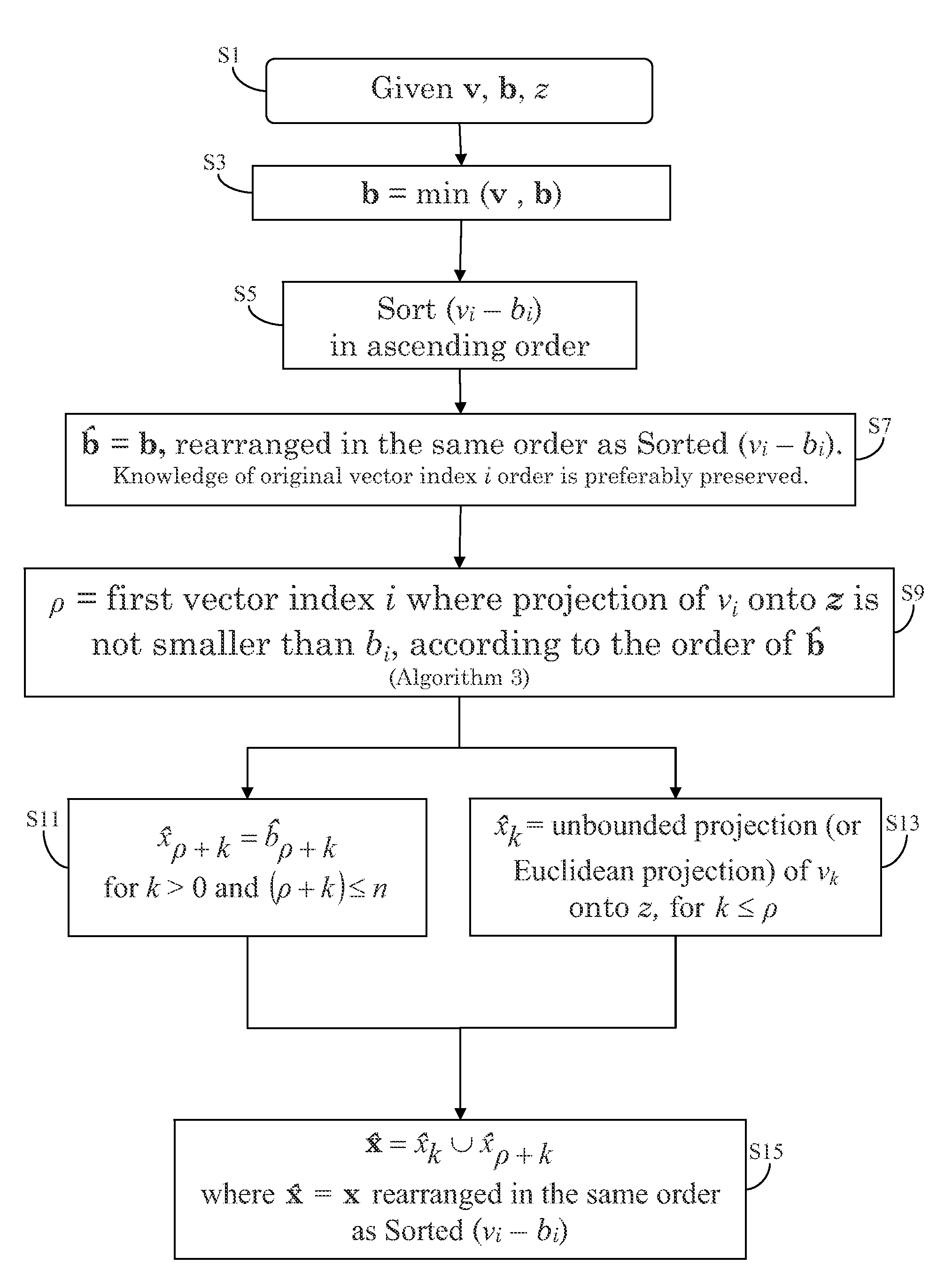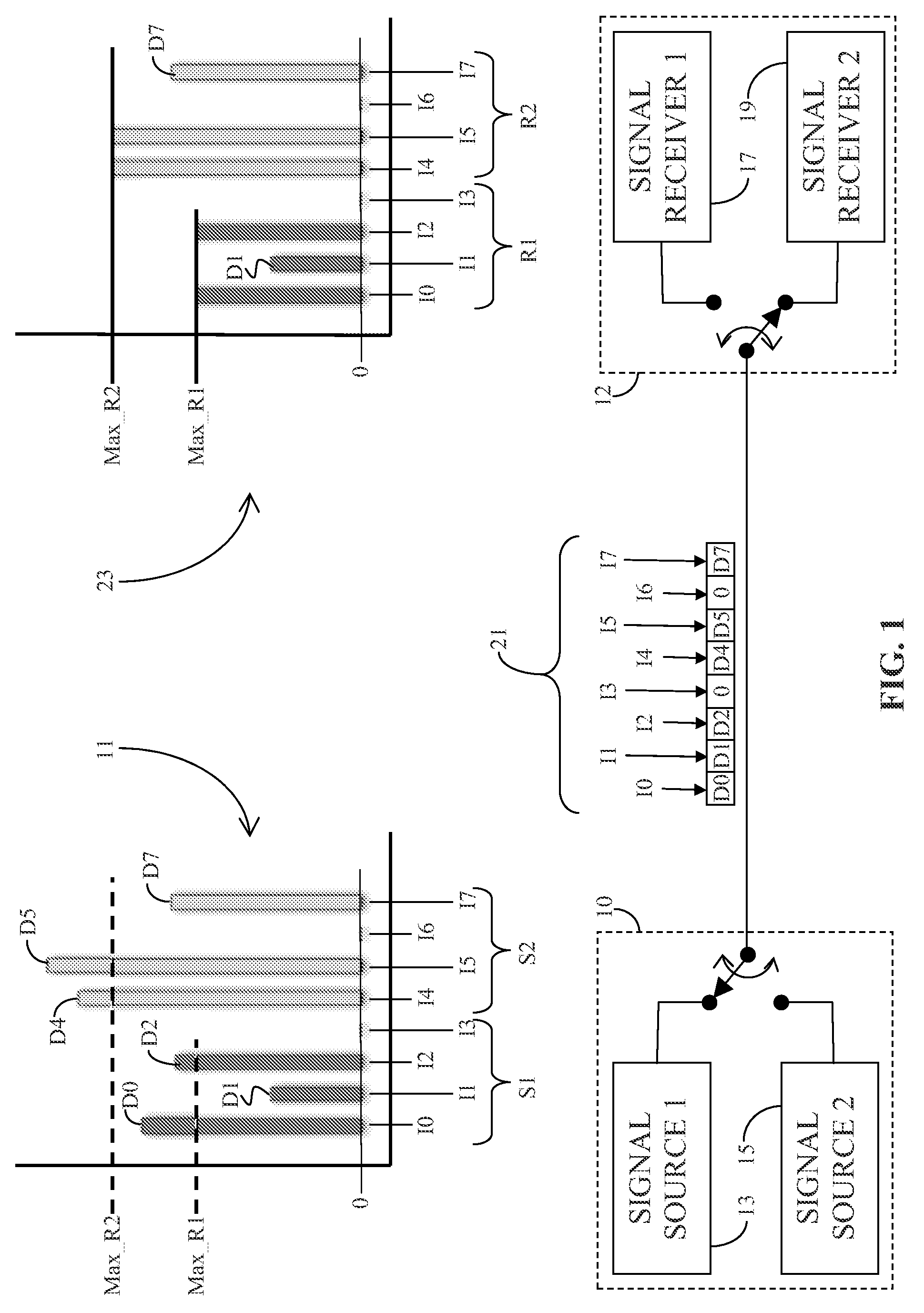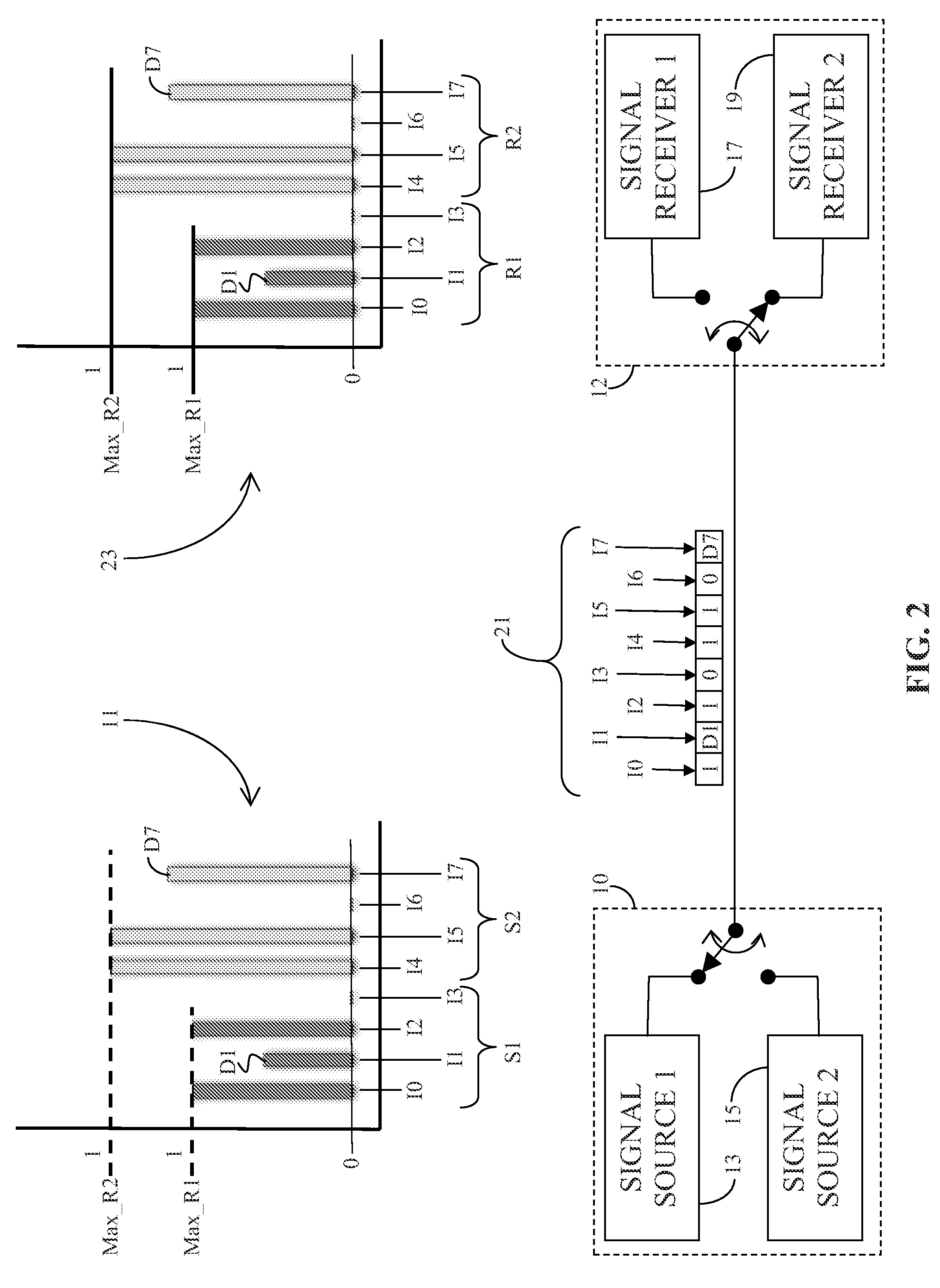Method for constraint optimization under box constraints
a constraint optimization and box constraint technology, applied in the field of machine learning, can solve problems such as high computational costs and potential difficulties
- Summary
- Abstract
- Description
- Claims
- Application Information
AI Technical Summary
Benefits of technology
Problems solved by technology
Method used
Image
Examples
case 1
[0118]Lemma 1. If vi>vj and in optimal solution xi=0, then xj=0, irrespective of ordering of bi and bj.[0119]Proof: We need to prove lemma 1 for two cases.[0120][Case 1] bi≧bj. In this case, if another solution is constructed such that xi and xj are switched keeping all other indices same, then there is a strict decrease in optimal value, generating a contradiction.[0121][Case 2] bij. Assume xj>0. If another optimal solution {circumflex over (x)} is constructed, such that {circumflex over (x)}i=Δ, {circumflex over (x)}j=xj−Δ, where Δ=min(bi, xj), and all the other indices are kept the same. It can be easily observed that the norm as well as the upper bound constraint are satisfied for {circumflex over (x)}.
Now it can be shown that:
[0122]Newobjfuncvalue-Oldobjfuncvalue=(vi-x^i)2+(vj-x^j)2-(vi-xi)2-(vj-xj)2=(vi-Δ)2+(vj-xj+Δ)2-vi2-(vj-xj)2=Δ2-2viΔ+Δ2+2vjΔ-2xjΔ=2Δ(Δ-xj)+2(vj-vi)Δ≤2(vj-vi)Δ<0
which is a contradiction since a solution better than the optimal solu...
PUM
 Login to View More
Login to View More Abstract
Description
Claims
Application Information
 Login to View More
Login to View More - R&D
- Intellectual Property
- Life Sciences
- Materials
- Tech Scout
- Unparalleled Data Quality
- Higher Quality Content
- 60% Fewer Hallucinations
Browse by: Latest US Patents, China's latest patents, Technical Efficacy Thesaurus, Application Domain, Technology Topic, Popular Technical Reports.
© 2025 PatSnap. All rights reserved.Legal|Privacy policy|Modern Slavery Act Transparency Statement|Sitemap|About US| Contact US: help@patsnap.com



